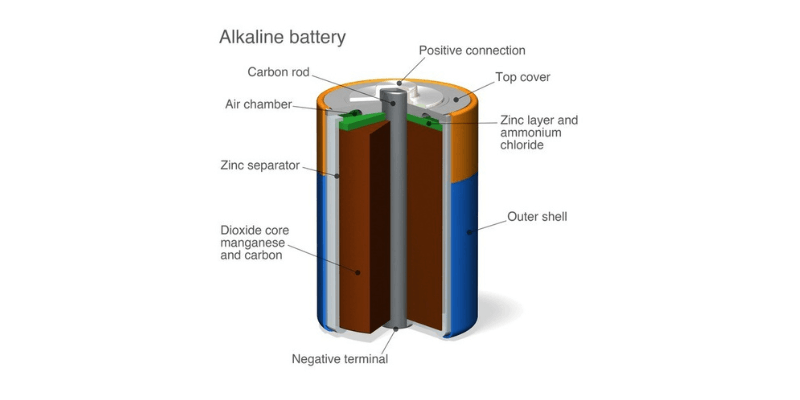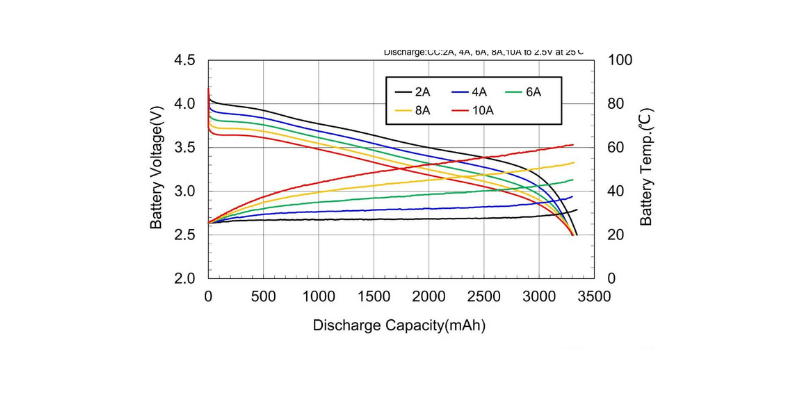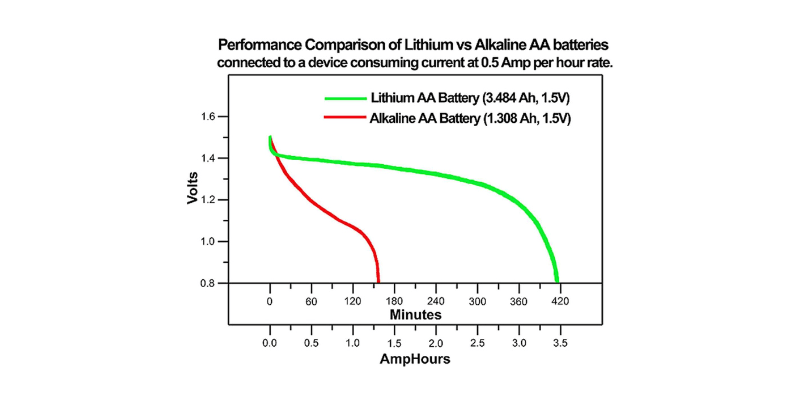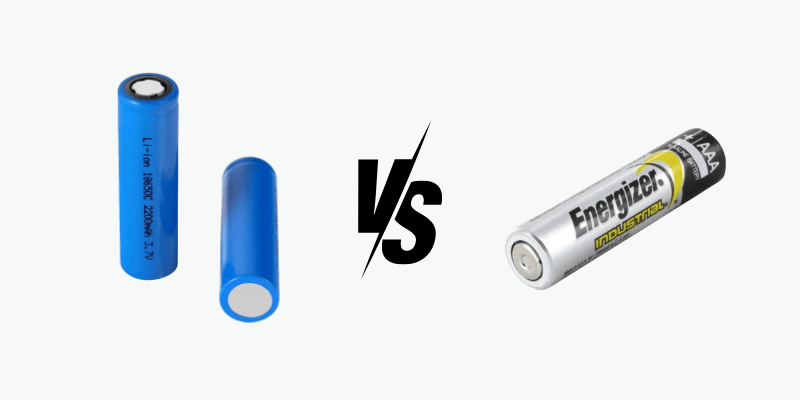Litijeve in alkalne baterije se običajno uporabljajo v gospodinjskih napravah in visokozmogljivi elektroniki. Ta članek raziskuje njihove ključne razlike, kot so kemija, uspešnost, življenjska doba in vpliv na okolje. Razumevanje teh razlik vam pomaga izbrati najboljšo vrsto baterije za učinkovitost in zanesljivost.
Kemija
obstajajo šest vrst litijevih baterij: LFP, LCO, LMO, NMC, NCA in LTO.
So razvrščeni po obliki v Prizmatične in valjaste celicein z materialom v tritij-ionske in litijeve železove fosfatne baterije.
Shranjena energija se razlikuje glede na zmogljivost; Na primer, celica 4000mAh 32650 LFP ima dvakrat večjo energijo 2000mAh 18650 NCM celice.
Alkalne baterije se zanašajo na cink in manganski dioksid. Ko se vleče tok, cink oksidira pri anodi, manganski dioksid pa se zmanjša na katodi.

Uspešnost
Gostota energije
Litijeve baterije imajo običajno višje energijska gostota (Več kot 200 WH/kg), kar jim omogoča, da shranijo več energije v manj prostora. Zaradi tega so idealni za naprave, ki zahtevajo dolge obratovalne čase ali kompaktne modele, kot so pametni telefoni, prenosni računalniki in električna vozila.
Alkalne baterije z manjšo energijsko gostoto (80-100 WH/kg) so bolj primerne za naprave z zmernimi potrebami po energiji, kot so svetilke, daljinski upravljalniki in igrače.
Stopnja samoplačila
Litijeve baterije imajo nižjo hitrost samopostrežnega odmora, kar jim omogoča, da obdržijo svoj naboj dlje, ko jih ne uporabljate. To je še posebej koristno za naprave, shranjene za daljše obdobje.
V nasprotju s tem imajo alkalne baterije višjo hitrost samoplačila, zaradi česar izgubijo naboj sčasoma, tudi če so neuporabljeni.
Stopnja praznjenja
Litijeve baterije podpirajo višje stopnje praznjenja, kar omogoča hitro dostavo energije. To je ključnega pomena za aplikacije, ki potrebujejo nenadne energijske razpoke, kot so električna orodja ali kamere.
Alkalne baterije imajo nižjo najvišjo hitrost praznjenja, zaradi česar so neprimerne za aplikacije z visokim tokom.

Območje obratovanja
Litijeve baterije učinkovito delujejo v širšem temperaturnem območju, zaradi česar so idealne za naprave, ki se uporabljajo na prostem ali v ekstremnih pogojih.
Alkalne baterije imajo omejeno delovno temperaturno območje, kar vpliva na njihovo delovanje v ekstremnih pogojih.
Napetost
Litij-ionske baterije imajo običajno nazivno napetost 3,7 voltov, čeprav se dejanska napetost lahko nekoliko razlikuje glede na vrsto (npr., LFP, LCO, NMC).
Alkalne baterije imajo nazivno napetost 1,5 voltov, kar ostane dosledno med praznjenjem.
Življenjska doba
Litijeve baterije trajajo osemkrat daljše od alkalnih baterij.
Alkalne baterije lahko trajajo 0,5-1 leto, medtem ko kakovostne litijeve baterije lahko trajajo 4-8 let.

Cena
Običajno litij-ionske baterije stanejo več kot alkalne baterije.
Na primer, polnilna litij-ionska AA baterija stane od 5 do 10 dolarjev na celico, alkalne AA baterije pa približno 0,50 do 1 dolar.
Vendar imajo litij-ionske baterije daljšo življenjsko dobo.
Vpliv na okolje
Litij-ionske baterije so bolj okolju prijazne kot alkalne baterije, ker so polnilne, zmanjšujejo porabo odpadkov in virov.
Medtem ko potrebujejo več sredstev za proizvodnjo, njihova trajnost s stotimi polnilnimi cikli pomeni, da je potrebno manj baterij, kar zmanjšuje vpliv na okolje.
Nasprotno, alkalne baterije so za enkratno uporabo in ustvarjajo bolj nevarne odpadke.
Zaključek
Za zaključek imata litijeve in alkalne baterije edinstvene lastnosti, zaradi katerih so primerne za različne aplikacije.
Litijeve baterije ponujajo večjo gostoto energije, nižje stopnje samoplačila in boljše zmogljivosti v ekstremnih pogojih, zaradi česar so idealne za naprave z visokim povpraševanjem, kot so pametni telefoni in električna vozila. Po drugi strani se alkalne baterije bolje uporabljajo za zmerne potrebe po energiji in se običajno uporabljajo v napravah, kot so svetilke in igrače.
Razumevanje kemije, zmogljivosti, življenjske dobe in vpliva na okolje teh baterij vam lahko pomaga pri sprejemanju informiranih odločitev pri izbiri najboljše vrste baterije za vaše potrebe.


